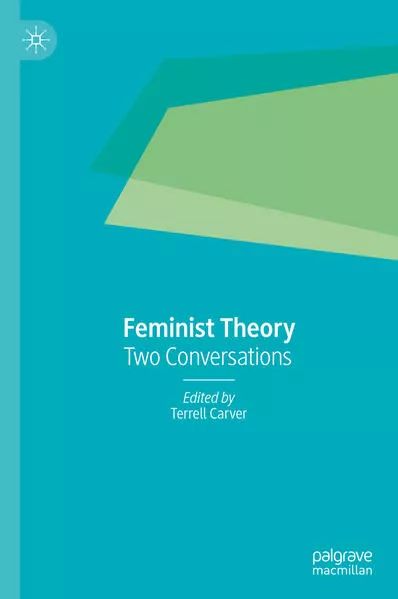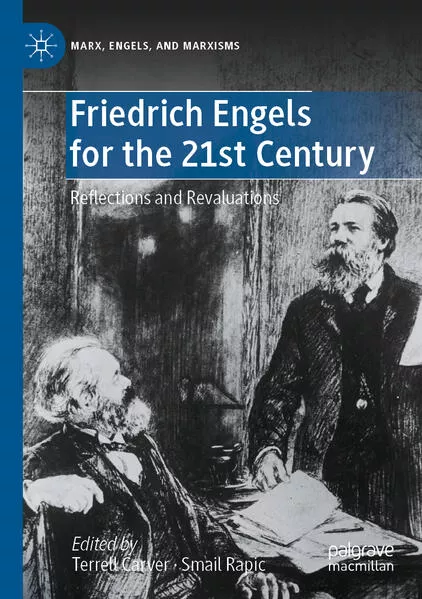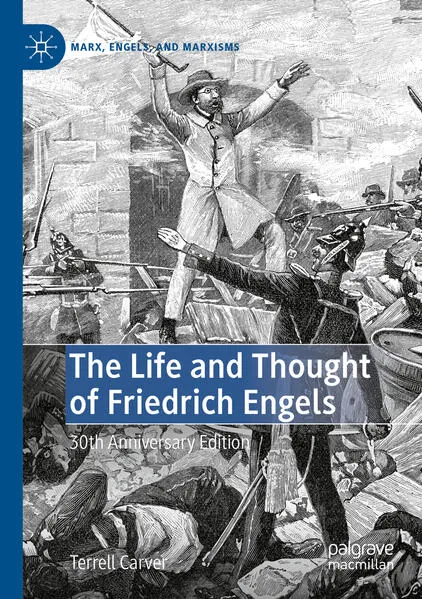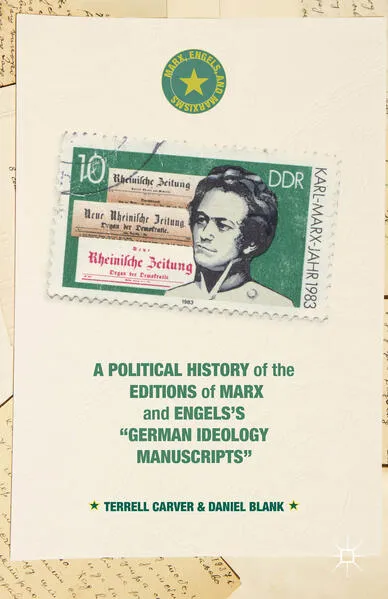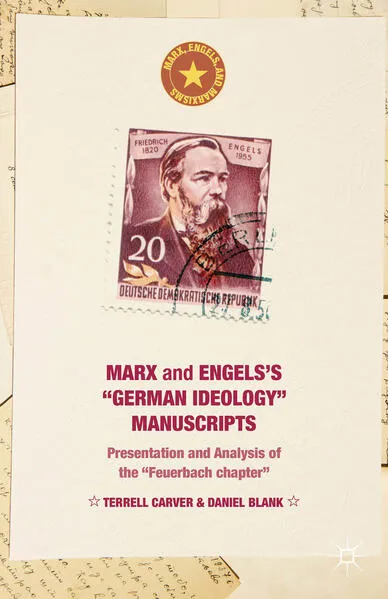
- Publikationen ca: 10
- Buchbewertungen ca: 12
- Fragen & Antworten
Terrell Carver
Terrell Carver is Professor of Political Theory at the University of Bristol, UK. He is co-general editor of the series “Marx, Engels, and Marxisms”. His most recent books are Engels Before Marx and The Life and Thought of Friedrich Engels, 30th Anniversary Edition, both from Palgrave Macmillan (2020).
Smail Rapic is Professor of Philosophy at the Bergische Universität Wuppertal, Germany. He has published widely on philosophical topics relating historical materialism to classical thinkers, such as Rousseau, and to contemporary philosophers, such as Habermas.
Feminist Theory
This volume brings together top articles on feminist political theory published in Contemporary Political Theory. With chapters on topics like abortion, the legacies of individual thinkers, and the role of care, the authors contribute varied but timely perspectives to the study of gender and politics.
Feminist Theory
This volume brings together top articles on feminist political theory published in Contemporary Political Theory. With chapters on topics like abortion, the legacies of individual thinkers, and the role of care, the authors contribute varied but timely perspectives to the study of gender and politics.
Friedrich Engels for the 21st Century
This edited volume presents an interdisciplinary and international revaluation of Friedrich Engels as much more than “junior partner” to Karl Marx or “second fiddle” in the Marxist orchestra. The nineteen critical essays in this collection are the work of scholars from Germany, USA, UK, Italy, China, India, Mexico and the Philippines.
Friedrich Engels for the 21st Century
This edited volume presents an interdisciplinary and international revaluation of Friedrich Engels as much more than “junior partner” to Karl Marx or “second fiddle” in the Marxist orchestra. The nineteen critical essays in this collection are the work of scholars from Germany, USA, UK, Italy, China, India, Mexico and the Philippines.
Friedrich Engels for the 21st Century
This edited volume presents an interdisciplinary and international revaluation of Friedrich Engels as much more than “junior partner” to Karl Marx or “second fiddle” in the Marxist orchestra. The nineteen critical essays in this collection are the work of scholars from Germany, USA, UK, Italy, China, India, Mexico and the Philippines.
The Life and Thought of Friedrich Engels
Worldwide political changes since 1990 have driven a re-evaluation of Marxism, a renaissance in Marx-studies, and a renewed interest in his lifelong intellectual partner and personal friend Friedrich Engels. In Terrell Carver’s 30th anniversary edition of his pioneering biographical study of the ‘junior partner’ – which still remains the only one to balance Engels’s pre-Marx, with-Marx, and post-Marx writings, giving a rounded view of his life and thought – Carver adopts a comparative and critical approach, neither taking the ‘perfect partnership’ as a given, nor presuming that all the intellectual fireworks were Marx’s.
A Political History of the Editions of Marx and Engels’s “German ideology Manuscripts”
Since the 1920s, scholars have promoted a set of manuscripts, long abandoned by Marx and Engels, to canonical status in book form as The German Ideology, and in particular its 'first chapter,' known as 'I. Feuerbach.' Part one of this revolutionary study relates in detail the political history through which these manuscripts were editorially fabricated into editions and translations, so that they could represent an important exposition of Marx's 'theory of history.
Marx and Engels's "German ideology" Manuscripts
Since the 1920s, scholars have promoted a set of manuscripts, long abandoned by Marx and Engels, to canonical status in book form as The German Ideology, and in particular its 'first chapter,' known as 'I. Feuerbach.' Part one of this revolutionary study relates in detail the political history through which these manuscripts were editorially fabricated into editions and translations, so that they could represent an important exposition of Marx's 'theory of history.
A Political History of the Editions of Marx and Engels’s “German ideology Manuscripts”
Since the 1920s, scholars have promoted a set of manuscripts, long abandoned by Marx and Engels, to canonical status in book form as The German Ideology, and in particular its 'first chapter,' known as 'I. Feuerbach.' Part one of this revolutionary study relates in detail the political history through which these manuscripts were editorially fabricated into editions and translations, so that they could represent an important exposition of Marx's 'theory of history.
Marx and Engels's "German ideology" Manuscripts
Since the 1920s, scholars have promoted a set of manuscripts, long abandoned by Marx and Engels, to canonical status in book form as The German Ideology, and in particular its 'first chapter,' known as 'I. Feuerbach.' Part one of this revolutionary study relates in detail the political history through which these manuscripts were editorially fabricated into editions and translations, so that they could represent an important exposition of Marx's 'theory of history.
